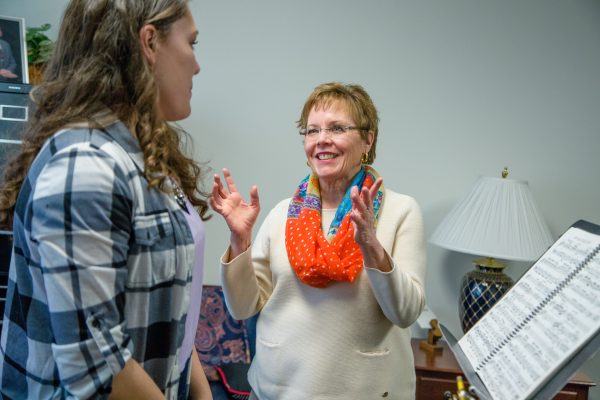Torn apart at times but never separated from God’s love. Ever.
John Henry Jowett has aptly said,
“God does not comfort us to make us comfortable, but to make us comforters.”
That’s precisely what my husband Sam and I hope to do by sharing of the rest of our cancer journey with you. Our desire is to be comforters, especially if you are a reader who has just passed through a heart-wrenching trial, or are in the midst of one, or are approaching some unknown bend in the road. Most important, it is our desire to reflect the compassion of Christ, who walks with us in the flames of trial and beyond.
For nearly two years after receiving a diagnosis of aggressive breast cancer in April 2007, I underwent relentless therapy—everything from radical surgery, chemotherapy, and radiation to a year’s worth of Herceptin infusions every three weeks.
Early in 2009, some 22 months post-diagnosis, we and our enduring support team rejoiced in my being able to check-off the last oncology-prescribed treatment and leave that season behind us. I was especially looking forward to regaining strength, stamina and renewed focus on things set to the side while I navigated the seemingly endless battery of treatments.
We were incredibly thankful, breathing a huge sigh of relief that cancer treatment was now complete for me and something we could begin to glance at in the rear-view mirror of our lives. We excitedly crossed caustic treatments off of our “To-Do” list!
However, God’s plan included continuing to develop in me and my wonderful family greater lessons about trusting His heart and deepening our souls.
Paul testifies to a critically important truth in Romans 8:38-39:
“For I am persuaded that neither death nor life, nor angels nor principalities nor powers, nor things present nor things to come, nor height nor depth, nor any other created thing, shall be able to separate us from the love of God which is in Christ Jesus our Lord.”
This is a truth we embrace experientially today, but with much greater commitment than was possible for us a decade ago. What these verses potently articulate, we experienced on our very own journey.
What we did not realize in 2009 was that we were actually on the cusp of a more difficult trial than we could have ever imagined. The unforeseen path was one definitely less-traveled than the aggressive cancer trail we’d just journeyed together. This totally unexpected path onto which we seemingly stumbled was one without any sort of a “road map of expectations.”
Fact is, medical science is only beginning to understand the after-effects of aggressive cancer treatment. In my case, the combination of the heavy-hitting, post-radical-surgery chemo, immediately followed by the punch of radiation and then the barrage of year-long Herceptin treatments, slammed my system into complete, detectible hormonal and endocrine system disarray. It also caused additional side-effects such as my body’s inability to get a complete night’s sleep. All these factors collided to zap my strength over the next 14 months.
My doctors’ believed that my system simply needed time to recover from the intense cancer treatments in order to right itself. But time alone proved to be insufficient.¹
By 2010, my doctors were expressing growing concern that their hard-hitting treatments (and possibly some infusion irregularities) may have altered my brain-chemical levels. But their diagnosis was simply symptomatic guesswork, since measuring altered brain chemical levels is neither as simple nor as precise as testing a patient’s blood count or Vitamin D level.
Here in a nutshell is what I experienced for the first time in my life—four very serious reactions, all beginning a year post-treatment. Just as chemotherapy gave me “chemo-brain,” a regular antibiotic medication post-chemo also compromised my blood/brain barrier. It took a hospitalization and three separate, severe reactions for the prescribing doctor to recognize the serious problem in play, and discontinue the medication.
What’s more, Herceptin treatment most likely caused my system to become increasingly sleep-deprived, which can really throw a monkey-wrench into one’s overall health and well-being.
I expressed each health concern immediately and thoroughly to my team of doctors as they unfolded for 15 months. However, their conclusion at the time was that the entirety of my health problems were related to the extremely out-of-sorts hormone and endocrine imbalance my system was experiencing. They referred me to leading endocrinologists and neurosurgeons. After extensive endocrine and neurology testing, it was decided that “a wait and see” approach would be medicine’s best option in light of my cancer history.
This medical team didn’t abandon me. They regularly retested all my endocrine levels and repeated brain MRIs on me every six months, particularly monitoring one enlarged gland. Their in-depth endocrine testing revealed that my system was extremely imbalanced – utterly baffling to the “best of the best” consulting physician team. Due to my insurance coverage thwarting some physician-recommended treatment, my condition gradually worsened, creating and eventually brewing the perfect health storm.
But just as Christ was quietly in the midst of the crashing storm on the Sea of Galilee with His disciples, Jesus was with me in the turbulent health storm that raged. Even when it began to get worse.
To be continued…
¹ I truly believe many cancer treatment patients suffer similarly, although in some cases to a lesser degree than I experienced. Determining how to deal with post- treatment effects continues to be an ongoing, lengthy learning process for the medical arena.








